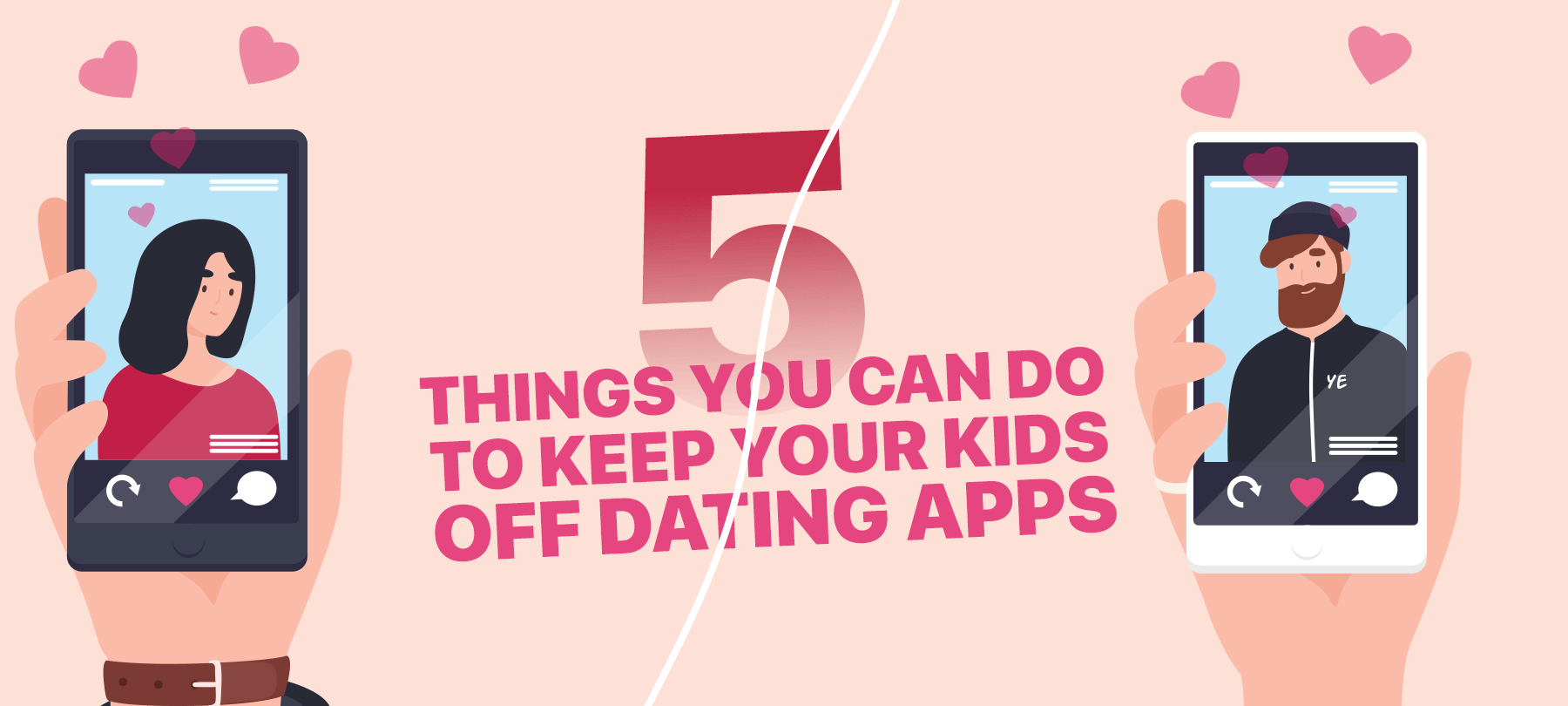
Five ways to keep your kids off dating apps
Being a mom or dad is hard. And these days, it seems like it’s harder than ever.
In addition to all the old challenges of raising happy and healthy kids, we have a host of new things to worry about as well. And one of the biggest of these is how to keep our children safe online.
Unfortunately, with the rise of smartphones and the proliferation of apps, it’s no longer as simple as putting the family computer in the middle of the living room. Some parents found this out the hard way last month, when they discovered that their 12-year-olds had been using dating apps—apps also used by adults!
The thought of grown men and women talking to kids on a dating app is enough to squick any parent out…and make you want to throw your child’s iPhone out the window.
But here’s the good news: There are some simple, effective steps you can take to make sure your kids stay off the dating apps…at least for another few years.
- 1
Activate Mom Mode
Wouldn’t it be great if you could stop your little guy from asking Siri to search for naughty words? Or get an alert on your own phone when your kids are trying to download an app on theirs? Good news! The help you need is already there.
Apple still has work to do when it comes to policing its App Store, but they do offer some powerful parental control tools in Screen Time, which can be found in your iOS Settings.
You can use the Content & Privacy Restrictions in Screen Time to filter your child’s web searches for adult content, limit or block app downloads, and receive alerts about their activity
In short, you can create a “sandboxed” iOS experience for your children—a safer and more age-appropriate version of the real thing.
- 2
Lose Your Innocence. Expect the unexpected
You’ve probably heard of Tinder, Match, or Bumble. But how about FastMeet, Meet24, and Meet4U?
Never heard of them? Not surprising. Yet these somewhat obscure dating apps were the culprits in those alarming news stories last month.
With millions of registered iOS developers worldwide, huge numbers of new apps are being submitted to the App Store every single day. And unfortunately, the approval process for these apps is still, shall we say, less robust than we’d like to see.
So remember, don’t assume that everything in the App Store is safe. And don’t just look for the household names you’ve heard before. If you don’t recognize an app or know what it does, do some detective work before allowing it on your child’s phone!
- 3
Take Cybersecurity 101
Do you know the difference between trojans and adware? Does “phishing” sound like a security threat—or just something you’d associate with ‘90s music?
Not all that tech-savvy? Don’t feel bad! You’re far from alone. But if you don’t know the basics of cybersecurity, or how to work the security features on an iOS device, then it’s going to be much harder to keep your kids safe online.
Here’s the thing: You don’t have to be some kind of “elite hacker” to master the essentials of cyber safety. In fact, an afternoon of reading a decent security blog can give you enough of a grounding to handle the vast majority of threats you’re ever likely to encounter.
A few hours of learning is enough to make a real difference—definitely worthwhile!
- 4
Resist Temptation. Don’t track. Talk.
Some moms and dads are so worried about their kids’ safety that they turn to tracking software and monitoring apps to watch over them.
It’s tempting to use technology to look over your children’s shoulders while they’re online.
But for a variety of reasons, we don’t recommend this.
For one thing, the companies which develop tracking technology are doing so for profit—which means they have every incentive to collect data on your children and then sell it to third parties.
Secondly, by allowing an app which collects sensitive data to run on your child’s phone, you can inadvertently create a security risk if the app developers haven’t properly protected their user data.
In other words, this kind of software can create the same kind of privacy and security issues you were trying to prevent! There is, thankfully, a far better solution.
Talk to your children—openly and honestly—about the dangers that are out there.
- 5
Stranger Danger 2.0
Kids aren’t dumb. But they are inexperienced. And they can be a bit naive when it comes to trusting strangers.
When your kids were little, you had to tell them not to open the door when they were home alone, or to take candy from strangers. Now that they’re older, they need you to give them common sense guidelines for protecting themselves online.
This isn’t to say that you need to make them anxious or afraid. But they should have a realistic picture of the sorts of dangers they might encounter online, and know what to do about them.
By helping them understand how to keep themselves safe—and explaining why you’re telling them to do these things—you’ll turn your children into their own best defense.
